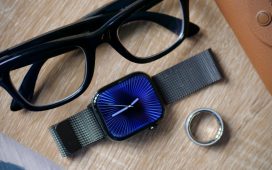Arm is in a rush to make money. Its parent company, Japanese tech conglomerate SoftBank, has been bleeding money and couldn’t convince regulators to have Nvidia buy the semiconductor design firm off of it. So, what’s “Plan B?” Spin the company off in an IPO. In order to do that, Arm needs to be seen making more money than it has been. And so, the company may be considering what market observers are calling a Hail Mary.
The Financial Times reports Arm is planning to shuffle around how it licenses its designs: instead of charging chip producers like Qualcomm and MediaTek to utilize their architecture and designs as Arm currently does, it wants to charge device makers a portion of their sales of phones, tablets, and other gadgets featuring chips that use its designs wholesale or any derivative thereof.
Sources say this could open up Arm to “several times” the revenue it currently gets. That said, Ars Technica reports the restructuring would likely not apply to Apple, which only licenses Arm’s architecture, and Samsung, with which it has a more encompassing agreement as both chip vendor and device seller.
Arm has been in talks with Qualcomm, MediaTek, Unisoc, and “multiple Chinese smartphone makers” like Oppo and Xiaomi. It wants to roll out the new licensing model next year, but so far, in the Times’s words, has been “frustrated by customers’ reluctance to accept the new arrangement.”
What smartphone OEMs do in response will, no doubt, affect the consumer experience whether they accept the costs and end up shuffling money around to suit their budgets and bore the crowd or go for an alternative like the open-source RISC-V architecture that Android is now supposedly supporting at the same level it does with ARMv8. The same, presumably, goes for Chromebook makers — though, a recent wave of premium ChromeOS products with Intel silicon may already be giving some cues.
For Google’s part as an OEM, the Tensor series of chips that it puts into its Pixel devices are modifications of Samsung’s Exynos designs which themselves trace back to Arm. With sales on the rise and barring any deals behind the scenes, the company may want to treat its gains a bit more jealously.











